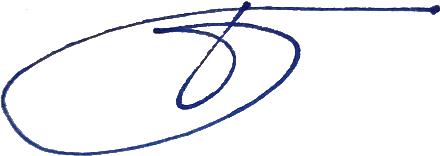 NTEU ACT Division
NTEU ACT Division
Level 2, Anthony Low Building,
124 Eggleston Rd,
Acton ACT 2601
Email
: xxx@xxxx.xxx.xx
Phone: 02 6125 2043
Web
: nteu.org.au/act
Professor Keith Nugent
Deputy Vice-Chancellor (Research & Innovation)
Office of the Vice-Chancellor
10 East Rd
Australian National University
Acton ACT 2601
18 October 2023
Dear Professor Nugent,
We are writing on behalf of National Tertiary Education Union (NTEU) members at the Australian National University
(ANU) employed in the National Computational Infrastructure (NCI).
The NTEU has met with multiple staff and former staff in NCI in recent weeks, and has a number of concerns relating
to work health and safety (WHS) and probity.
Work Health and Safety
The NTEU has reasonable cause to suspect that the ANU is failing to meet its primary duty of care under the
Work
Health and Safety Act 2011 (Cth) (‘the Act’) in relation to psychosocial hazards within NCI and is therefore
contravening the Act. This duty in relation to psychosocial hazards is further clarified by div 11 of the
Work Health
and Safety Regulations 2011 (Cth).
Under s 19 of the Act, the ANU (as a Person Conducting a Business or Undertaking (PCBU)) has a primary duty of
care to ANU staff:
(1) A person conducting a business or undertaking must ensure, so far as is reasonably practicable, the health and
safety of:
(a) workers engaged, or caused to be engaged by the person; and
(b) workers whose activities in carrying out work are influenced or directed by the person;
while the workers are at work in the business or undertaking.
(2) A person conducting a business or undertaking must ensure, so far as is reasonably practicable, that the health and
safety of other persons is not put at risk from work carried out as part of the conduct of the business or undertaking.
(3) Without limiting subsections (1) and (2), a person conducting a business or undertaking must ensure, so far as is
reasonably practicable:
(a) the provision and maintenance of a work environment without risks to health and safety; and
(b) the provision and maintenance of safe plant and structures; and
(c) the provision and maintenance of safe systems of work; and
(d) the safe use, handling and storage of plant, structures and substances; and
(e) the provision of adequate facilities for the welfare at work of workers in carrying out work for the business
or undertaking, including ensuring access to those facilities; and
(f) the provision of any information, training, instruction or supervision that is necessary to protect all persons
from risks to their health and safety arising from work carried out as part of the conduct of the business or
undertaking; and
(g) that the health of workers and the conditions at the workplace are monitored for the purpose of preventing
illness or injury of workers arising from the conduct of the business or undertaking.
Current and former NCI staff have reported concerns to the NTEU regarding incidents, behaviour, and work culture
which suggest that psychosocial hazards are present in the workplace, without effective control measures. The most
widespread and concerning hazards are:
• Poor support
o Tasks or jobs where workers have inadequate support including practical assistance and emotional
support from managers and colleagues, or inadequate training, tools and resources for a task.
• Bullying
o Repeated unreasonable behaviour directed towards a worker or group of workers that creates a
risk to health and safety.
• Harassment
o Harmful behaviour that does not amount to bullying (such as single instances) but creates a risk to
health or safety.
• Conflict or poor workplace relationships and interactions
o Poor workplace relationships or interpersonal conflict between colleagues or from other
businesses, clients or customers.
Page 2 of 6
o Frequent disagreements, disparaging or rude comments, either from one person or multiple
people, such as from clients or customers. A worker can be both the subject and the source of this
behaviour.
• Lack of role clarity
o Uncertainty, frequent changes, conflicting roles or ambiguous responsibilities and expectations.
• Poor organisational change management
o Insufficient consultation, consideration of new hazards or performance impacts when planning for,
and implementing, change.
o Insufficient support, information or training during change.
o Not communicating key information to workers during periods of change.
• Inadequate reward and recognition
o Jobs with low positive feedback or imbalances between effort and recognition.
o High level of unconstructive negative feedback from managers or customers.
o Low skills development opportunity or underused skills.
• Poor organisational justice
o Inconsistent, unfair, discriminatory or inequitable management decisions and application of
policies, including poor procedural justice.
This list is not exhaustive. Generalised psychosocial hazards have been listed in a manner consistent with the Safe
Work Australia model Code of Practice,
Managing psychosocial hazards at work.
As Deputy Vice Chancellor (Research & Innovation) you are a responsible officer as per s 252 of the Act. Under s 27
of the Act you ‘must exercise due diligence’ to ensure that ANU is meeting its primary duty of care.
The NTEU has evidence that ANU was (and is) aware of psychosocial risk. Specifically:
• Extensive psychosocial risks were identified through a survey circulated in March 2022. The results of this
survey were communicated to the Work Environment Group (WEG, now Safety & Wellbeing) in April 2022;
• These risks were identified and assessed through a risk assessment process in January 2023, which were
consulted on with staff in February 2023. Again, WEG provided initial advice, including that some risks
should be upgraded to ‘Extreme’; and
• In May 2023 NCI Director, Professor Sean Smith, subsequently altered the risk assessment to
inappropriately minimise the likelihood, consequence, and risk rating for most risks. Professor Smith also
removed suggested control measures.
Page 3 of 6
The NTEU is also aware that, in recent years:
• NCI has experienced extremely high staff turnover, including a disproportionately high turnover of women
staff members;
• NCI has had multiple staff members on leave due to work-related stress; and
• NCI has had multiple staff members suffer psychological injury (including very serious psychological injury).
The NTEU is also aware that in May 2023 the ANU engaged HBA Consulting to ‘undertake a consultative process to
inform an assessment of the workplace culture within NCI’. This cultural review was conducted by Gary Champion,
with Kirsty Abercrombie acting as the ANU contact for staff.
Probity concerns
In the course of discussions with current and former NCI staff on matters related to psychosocial hazards, staff
conveyed a number of other concerns relating to potential conflicts of interest, tendering processes, and hiring
practices. We feel obliged to raise these concerns so that ANU may consider whether to investigate further, as they
potentially represent inappropriate use of University funds. They also represent potential non-compliance with ANU
policy, and contribute to psychosocial hazards (e.g. poor organisational justice).
Specifically, these concerns relate to:
• Tendering arrangements with Intersect in relation to training, including the initial selection of Intersect as a
preferred tender.
o Staff have expressed concern that Intersect was chosen rather than QCIF, which would have given
ANU a significant advantage in that ANU would retain training materials and videos.
o Staff have expressed concern about whether a conflict of interest had been declared in accordance
with ANU policy in relation to Intersect procurement – specifically that Intersect’s Education and
Outreach Manager, Dr Meiyun Chang-Smith, was the spouse of NCI Director Professor Sean
Smith.
▪ Staff have further reported a potential relationship between the continuation of Dr Chang-
Smith’s position at Intersect, and the continuation of the ANU contract.
• Further concerns relating to the renewing of contractual arrangements with Intersect.
o In October 2022 advice provided by Bernie O’Dowd, the ANU’s Chief Procurement Officer, stated
that there were no grounds for renewing the contract, and included a recommendation to run a new
tender process.
Page 4 of 6
o Staff have raised concerns that the subsequent decision to proceed with renewal of the contract
was influenced by the aforementioned conflict of interest, and that there was a relationship
between the timeline for concluding negotiations and an impending divorce settlement (i.e. that it
was favourable to Professor Smith that Dr Chang-Smith’s employment continue in terms of the
settlement).
• Concerns relating to appointment practices. Specifically, that recruitment practices are run with abbreviated
timeframes, little to no external advertising for senior positions, and little communications with staff (other
than those apparently preferred for the role). These concerns have been reported in relation to appointment
processes for:
o Deputy Director, Business Development and User Engagement
o Executive Officer
• Concerns relating to the conduct of staff.
o Use of access cards from other staff members to gain access to work areas, leading to tens of
thousands of dollars worth of damage to University property.
o Inappropriate use of visitor parking permits by staff.
Consultation
The NTEU requests urgent consultation on the WHS issues detailed above. To aid with this consultation, the NTEU
requests a copy of the review conducted by Gary Champion from HBA Consulting by COB Tuesday 24 October
2023.
The NTEU is willing to assist the ANU in the collection of information in relation to WHS and probity concerns listed
above.
Please do not hesitate to contact Dr Lachlan Clohesy if you have any questions in relation to this correspondence.
Page 5 of 6


Kind Regards,
Dr Lachlan Clohesy
Millan Pintos-Lopez
ACT Division Secretary
ANU Branch President
National Tertiary Education Union (NTEU)
National Tertiary Education Union (NTEU)
Phone (M): 0418 493 355
Phone (M): 0449 787 398
Em
ail: xxxxxxxx@xxxx.xxx.xx
Em
ail: xxxxxxxxxxxx@xxxx.xxx.xx
Page 6 of 6


